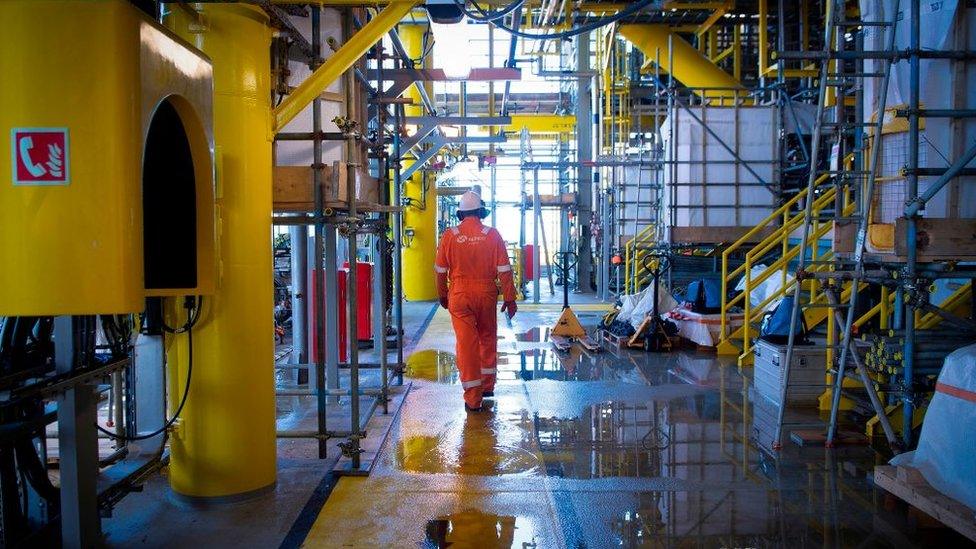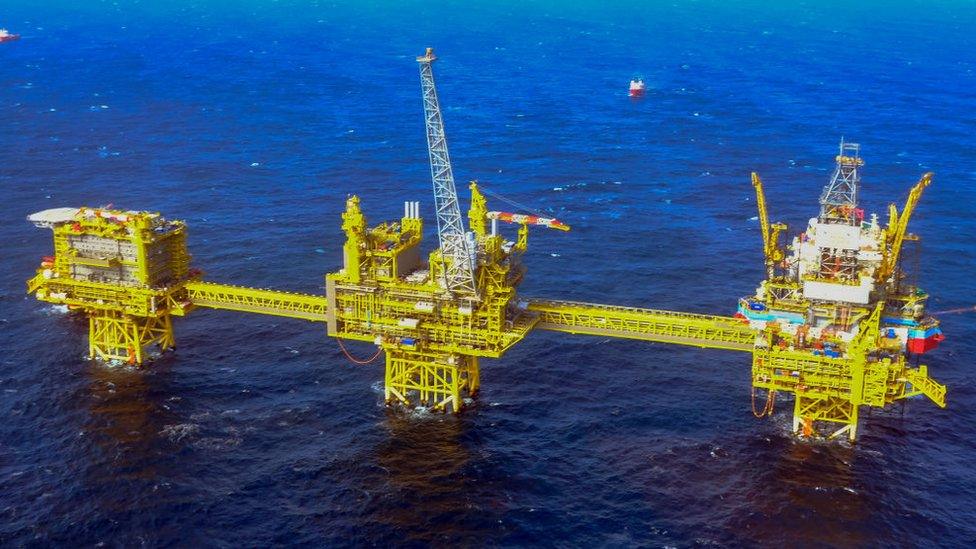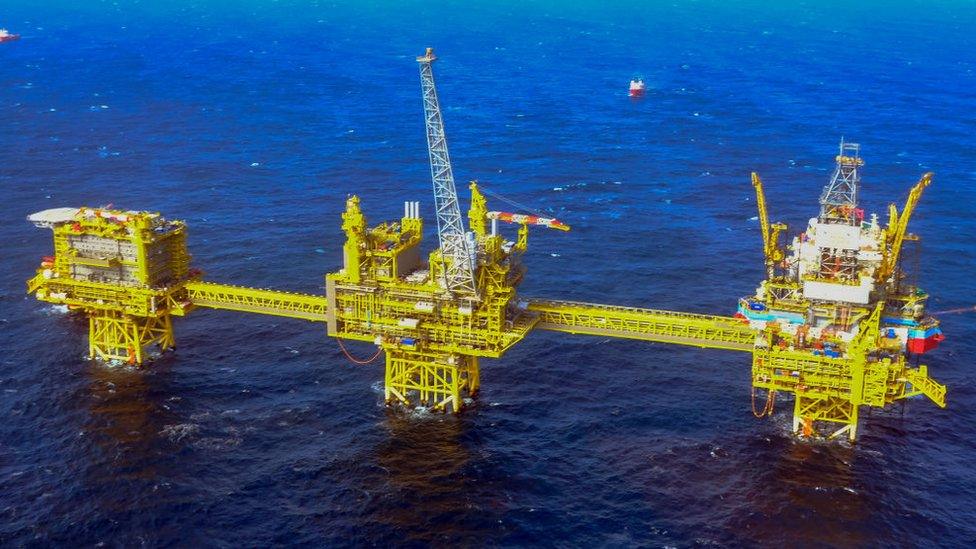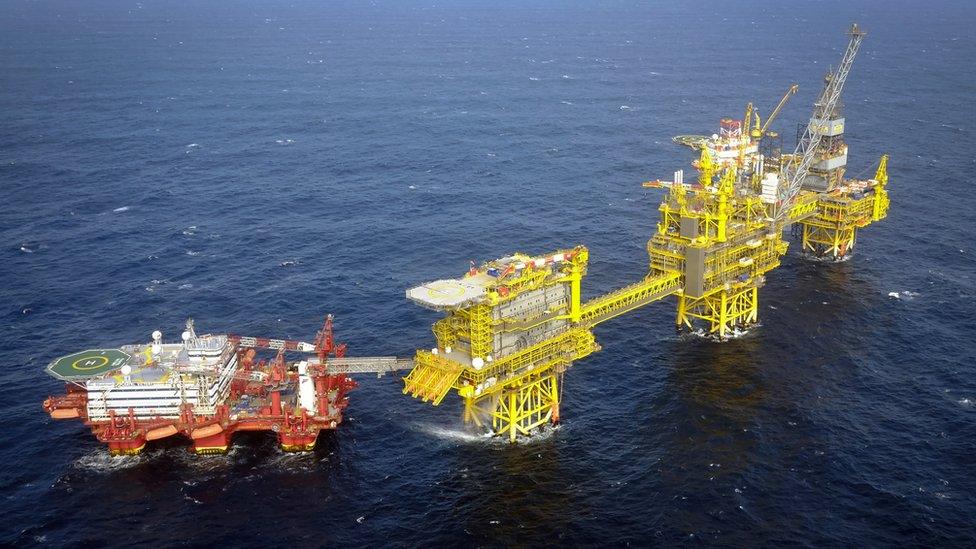Climate change: Oil and gas sector 'to halve emissions by 2030'
- Published

Offshore platforms will be one of the main areas of focus for cutting emissions
The oil and gas sector aims to halve emissions from production and exploration by 2030 in its bid to reach net-zero by the middle of the century.
The industry is responsible for about 4% of UK emissions, but that does not include the consumption of oil and gas.
Platforms will be electrified either through connections to the land or locally-generated renewables.
Green groups say companies also need to take responsibility for what happens to the oil they produce.
Production platforms, exploration, shipping and helicopter movements will be counted, along with emissions from onshore terminals.
The 2018 figure will be used as the starting point when the equivalent of 18.3m tonnes of carbon dioxide was emitted.
About half a million tonnes will still be allowed by 2050 for "emergency flaring", but these will be offset by other sectors such as forestry.
Industry body Oil and Gas UK's chief executive Deirdre Michie said: "Our industry will play its part by reducing its emissions and using its skills to develop the solutions that will be needed to make a significant contribution to the UK's overall targets."
The targets take into account that some older production platforms, which are more carbon intense, will be decommissioned.
The largest CO2 saving will come from electrification but a programme will also begin to progressively reduce the amount of flaring, which occurs when excess gases are burned off.
'Move at pace'
The industry said it recognised that emissions associated with the use of oil and gas were much greater than those from the production process.
However, it insisted that ending production early would only result in oil and gas being imported with even higher emissions.

The industry itself is responsible for about 4% of UK emissions - not including the emissions from the consumption of oil and gas
Lang Banks from WWF Scotland said: "The oil and gas industry needs to take responsibility for the use of its products, not just how green its operations are.
"Reducing our dependence on fossil fuels is the only fair and sustainable way to address the climate emergency."
UK Energy Minister Kwasi Kwarteng said: "The offshore oil and gas sector's commitment to halving operational emissions over the next decade is a welcome step for an industry that has a vital role to play in our energy transition in the years to come."
Scotland's Energy Minister Paul Wheelhouse added: "This is not only an important commitment from one of Scotland's key sectors, but a significant step to support Scotland's just transition to net-zero which helps us move at pace."
- Published28 April 2020

- Published4 September 2019
